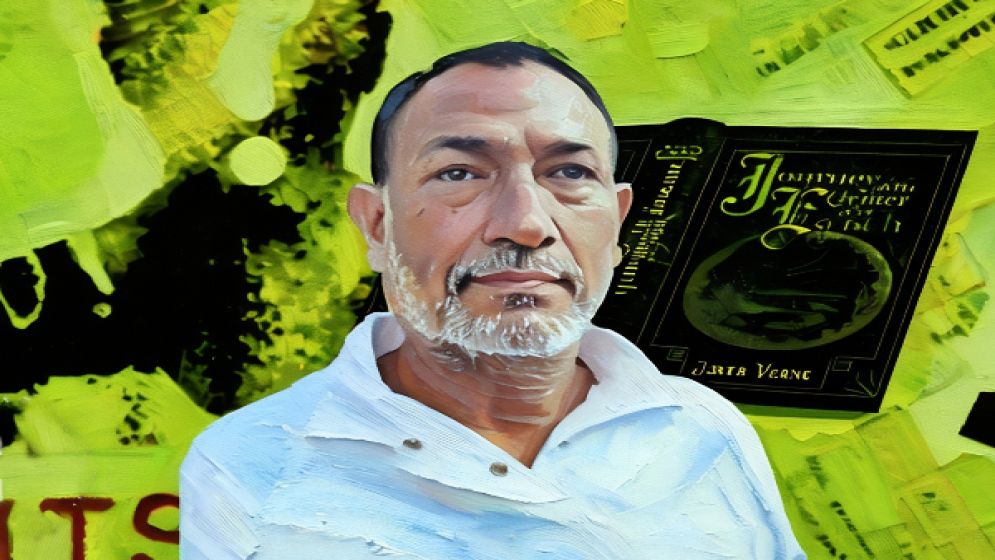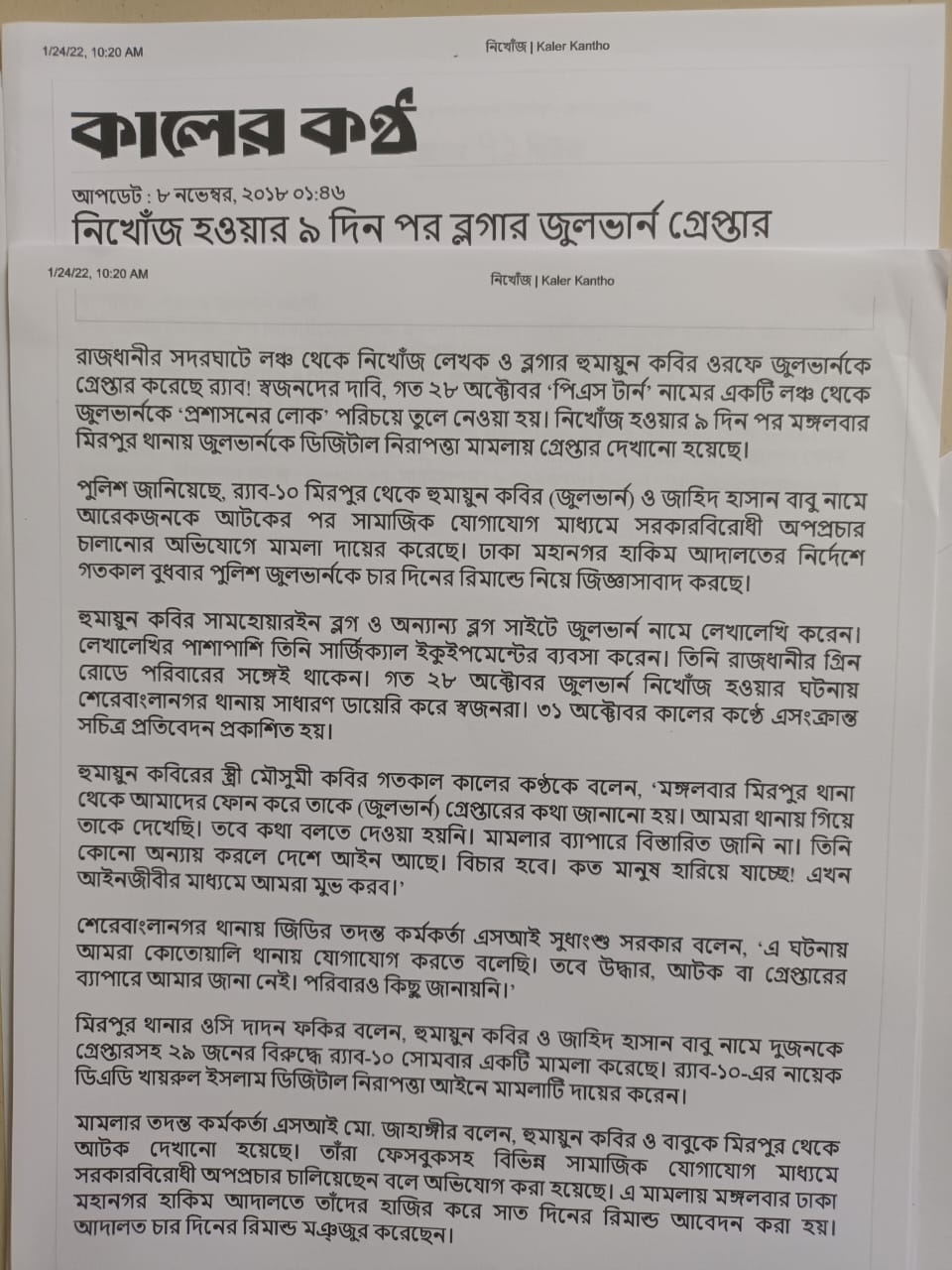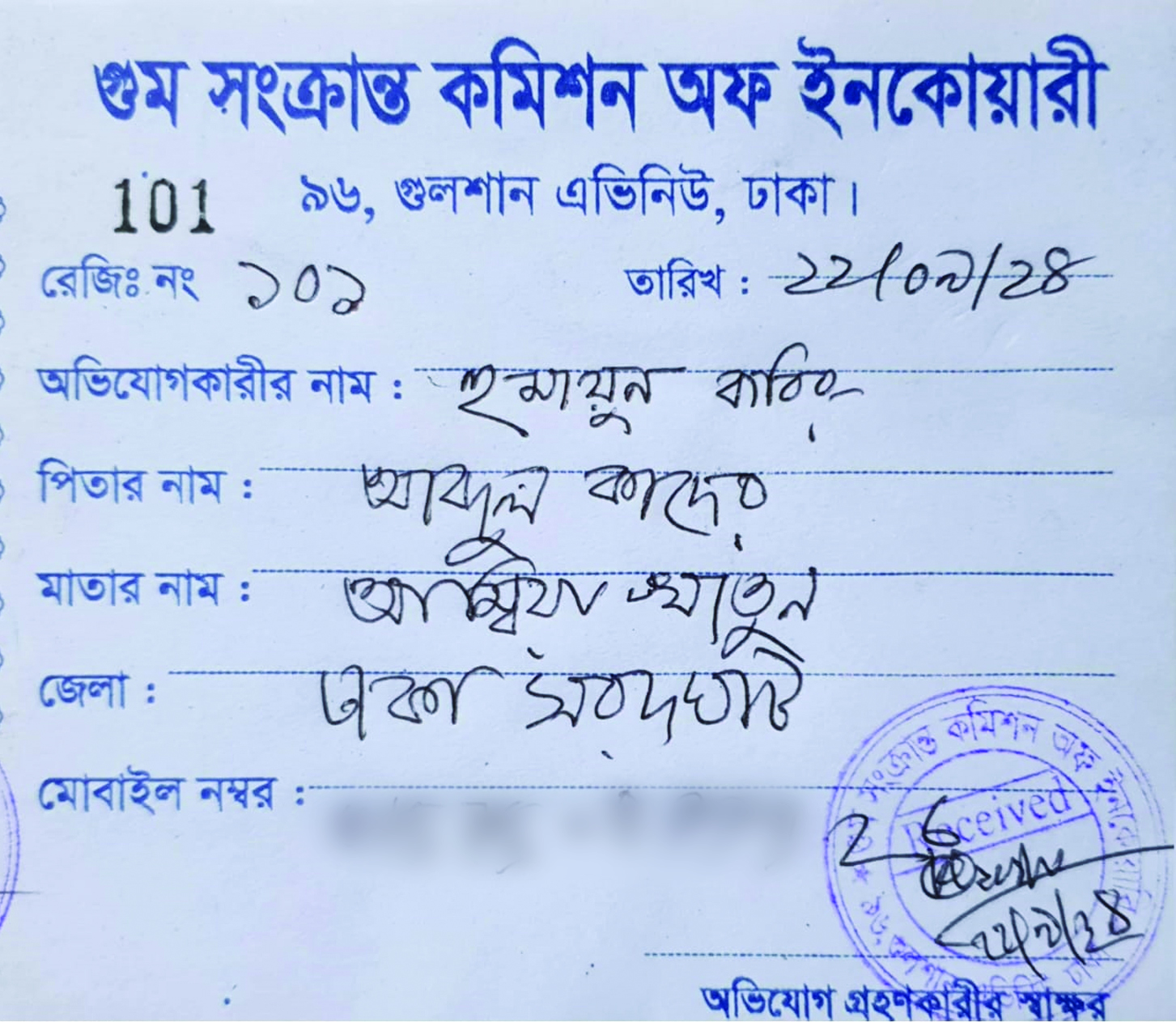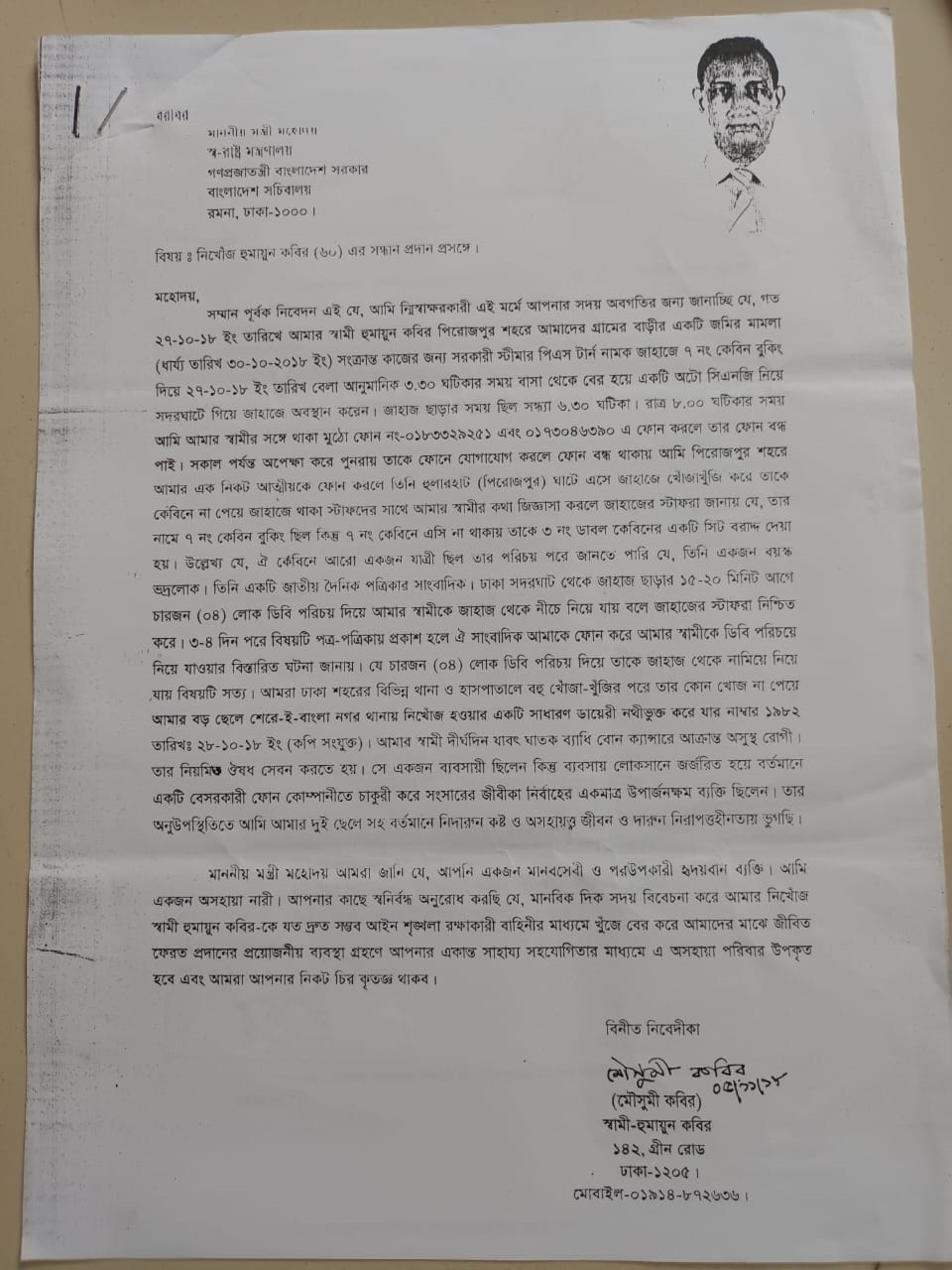How a Bangladeshi blogger endured '11 days in hell' for his writings against Hasina

In his acclaimed novel Around the World in Eighty Days, French author Jules Verne captivated readers with the thrilling adventures of Phileas Fogg and his servant Passepartout as they raced against time to circumnavigate the globe.
From the jungles of India to the bustling streets of Japan, Fogg faced a series of extraordinary challenges, each more perilous than the last.
This is the story of a different Jules Verne, a Bangladeshi blogger who, under the pseudonym "Jules Verne," found himself facing a real-life ordeal far more terrifying than any fictional adventure.
Humayun Kabir, the man behind the pen name, was a successful businessman and a popular blogger known for his sharp commentary on current affairs.
But his critical writing would soon land him in the clutches of a force notorious for its brutality: the Rapid Action Battalion (RAB), often dubbed Bangladesh's death squad.
On the evening of October 27, 2018, Kabir set out from Dhaka for a court appearance in Pirojpur, a journey that would take him by steamer down the river.
As daylight faded, his voyage took a sinister turn. Five armed men, their faces hidden, stormed the deck and abducted Kabir in full view of his fellow passengers.
Bundled into a waiting microbus, he was handcuffed, blindfolded, and driven to an unknown location.
His captors wasted no time in revealing their motive. "Why do you write against the government on your blog and Facebook?" they demanded. "Who in the BNP is directing you? Why do you criticize Sheikh Hasina and Sajeeb Wazed Joy?"
Kabir was then informed that his writings
had earned him powerful enemies and that orders for his elimination had come
from the highest levels of government.
Tortures for 11 days
In his written complaint submitted to the newly formed commission to investigate enforced disappearances–a copy of which is obtained by Bangla Outlook– Humayun Kabir describes being blindfolded, beaten, and electrocuted.
He was forced into a cramped room where he couldn't stand upright, stripped naked, and tortured daily. His tormentors used electric shocks on his genitals, beat his knees and ankles with boots, and struck him with heavy objects.

They even pierced his waist and toenails
with needles, ripping out one of his fingernails.
Kabir recounts the constant threat of death, enduring days of being hung by one leg while being beaten. During one such instance, his blindfold slipped, revealing some of his captors, including the one who initially seized him from a steamer.
He remained unaware of his location and the identity of those who held him.
For an unknown period, Kabir was disoriented and unable to distinguish day from night. He marked the passage of time only by the sound of the Fajr prayer call.
Then, abruptly, his captors removed his
blindfold and handcuffs, ordering him to bathe.
Blinded for so long, his vision slowly returned, revealing the extent of
his injuries: blood-soaked clothes, bruises covering his body, and wounds on
his face.
He was left with impaired hearing and a profound sense of disorientation. When he asked for the date and time, one of his captors simply replied, "7th, 6 pm."
Kabir's ordeal then took another bewildering turn. After being shaved and given fresh clothes, he was informed of his impending release.
However, his possessions, including 4 lakh taka in cash, 42,000 taka in his pocket, a valuable Tissot watch, a Lenovo laptop, and two Huawei phones – one intended as a gift for his sister – were withheld.
The “staged” release
Then on an unspecified evening, three individuals appeared, placing two mobile phones and some money in Kabir's pockets. He was led to a balcony where, for the first time, he saw a fleet of vehicles marked "RAB-10," finally realizing he was in the custody of this elite anti-crime unit.
Five men in civilian clothes then escorted him in a microbus to the Dhaka-Chittagong bus counter in Sayedabad.
As he was instructed to leave, flanked by two of the men, Kabir noticed a RAB-10 pickup van, a black Land Cruiser jeep, and numerous armed RAB personnel.
Panic surged through him, and he instinctively tried to quicken his pace.

"If you run, we will shoot
you," the men beside him threatened, pressing pistols into his ribs. Suddenly, 4 or 5 uniformed RAB personnel
seized him, dragging him into the Shyamoli bus ticket counter.
They confiscated the phones and money, declaring him a terrorist they had been hunting, and falsely accused him of writing against the government, citing the phones as evidence.
In full view of the public, they handcuffed Kabir and demanded his name and address, recording the information with witnesses from the bus counter. He was then forced into a RAB-10 pickup van and taken to their Dhalpur camp.
There, he was brought before the company commander, Additional SP Mohiuddin Farooqi, whose name was displayed on a nameplate outside the room.
Inside Mohiuddin Farooqi's office, the truth of Kabir's ordeal became chillingly clear. Farooqi admitted Kabir's arrest was based on his online posts criticizing the government, the Prime Minister, and Sajeeb Wazed Joy.
He revealed orders from the highest levels – the Prime Minister, Home Minister, and unnamed "Sirs" – to kill Kabir in a staged crossfire. Farooqi warned Kabir to remain silent, threatening further consequences from RAB-2, where he was being transferred, if he disobeyed.
The chilling truth of power abuse
Kabir's complaint exposes the intricate web of power behind his detention. RAB-10, led by then-captain Additional DIG Jahangir Hossain Matubbar (now DIG of DMP), filed the cases against him.
Following orders from Farooqi, former Home Minister Asaduzzaman Khan Kamal, and other high-ranking officials, RAB-10 fabricated a narrative of Kabir's arrest.
Nayeb Subedar Khairul Islam of RAB-10 became the plaintiff, charging Kabir under the Digital Security Act and handing him over to Mirpur police station.
Corruption permeated every stage of Kabir's case. During his four-day remand, a duty officer extorted 20,000 taka from his wife.
SI Kazi Md. Jahangir Alam and OC Dadan Fakir of Mirpur Model Police Station then took an additional 110,000 taka. Even after being sent to central jail, Kabir faced further threats and extortion.
SI Abdul Qader, the new investigating officer, threatened him with further remand and crossfire, ultimately extracting 370,000 taka in exchange for his release.

After enduring four and a half months of
imprisonment, Kabir finally secured bail from the High Court Division of the
Supreme Court.
Kabir's legal troubles continued even after his release on bail. He discovered he had been implicated in two more cases at Jatrabari Police Station, both related to the Digital Security Act and the Information and Communication Technology Act.
Despite securing anticipatory bail from the High Court, he spent nearly a month in jail before being granted bail in these cases.
The Mirpur Model Police Station case, where he was initially charged, was eventually transferred to the Cyber Tribunal.
However, with a change in government, Kabir was acquitted by the tribunal on August 11, 2024. While he was also cleared of charges in one of the Jatrabari cases, the other remains under trial at the Cyber Tribunal.
The complaint to the commission
In his complaint, Kabir directly accuses former Prime Minister Sheikh Hasina, her son Sajeeb Wazed Joy, former Home Minister Asaduzzaman Khan Kamal, and other high-ranking officials for the brutal torture he endured during his 11 days of detention and disappearance in RAB-10 custody.
He details the lasting physical and mental consequences of the abuse, including impaired vision, hearing loss, chronic pain, and difficulty walking.
Even after his release, Kabir required three months of treatment at CRP Mirpur Hospital.
Kabir's disappearance remained a mystery to his family. His son filed a missing person report at Sher-e-Bangla Nagar police station on October 28, 2018, and the case was covered by various national newspapers.
However, Kabir claims that when his wife sought help from the IGP of Police, the DG of RAB, and the Home Minister, they offered no assistance and instead treated her with disrespect.
Seeking justice for his ordeal, Kabir filed a complaint with the National Commission for Enforced Disappearance on September 22, 2024.
After reviewing his evidence, the commission chairman, Justice Mainul Islam Chowdhury, and commissioner Dr. Nabila Idris encouraged him to file a complaint with the International Crimes Tribunal.
During his meeting with the commission, Dr. Nabila Idris meticulously recorded Kabir's statement and advised him that the International Crimes Tribunal would be the appropriate venue to investigate his case thoroughly.
Kabir, determined to pursue justice, plans to submit a detailed complaint to the tribunal, including documentation of his three cases under the Digital Security Act.
Despite repeated attempts to contact the accused police officers for their response to the allegations, they remained unreachable.
—-

